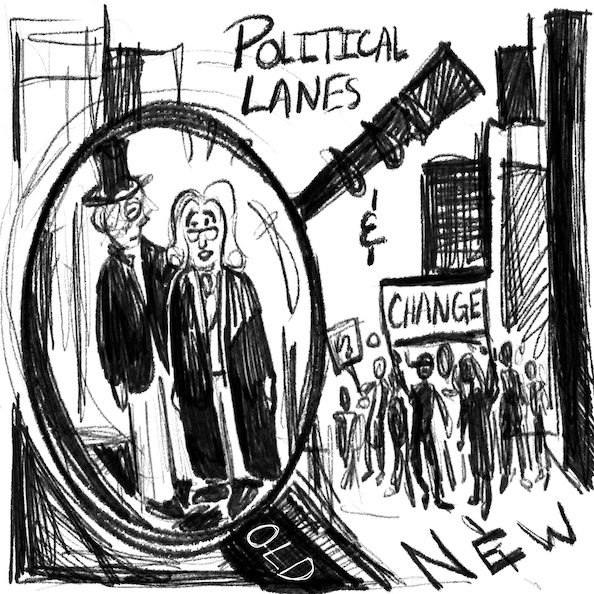It’s past time to pluralize political theory at Bowdoin
September 15, 2023
 This
piece represents the opinion of the author
.
This
piece represents the opinion of the author
.
 Lauren Russler
Lauren RusslerAs a recent alum and government major, these past few weeks have been bittersweet. For the first time in four years, I don’t get to walk into Hubbard ready to talk politics. Instead, I logged into Microsoft Teams from a brutalist building in Washington, D.C., coffee in hand, ready to talk climate policy. With newfound time on my hands (no homework!), I’ve had the chance to reflect on my time in Bowdoin’s government department. It was a rewarding intellectual experience, and I am so grateful to my professors and peers. But I often felt constrained by the lack of diverse political theory offerings and wanted to bring it up as food for thought as a new semester begins.
By teaching only Western political philosophy in classes that count for the political theory concentration, the government department makes theory exclusive and discourages an increasingly diverse student population from taking theory courses. To remain intellectually vibrant and academically relevant, the department should expand its political theory offerings and treat non-Western political theory as legitimate and essential for making meaning in a plural world.
A quick glance at class offerings this fall highlights the government department’s narrow conception of political theory. A theory-focused first-year seminar in the department aims to “explore the fundamental questions of political life,” but does so exclusively through a Western perspective, citing theorists like Plato and Nietzsche. Upper-level political philosophy classes examine ancient Greek and Christian texts and works by Arendt, Rawls, Foucault and other white scholars. It seems that the government department regards theory not generated by classical, European or North American authors as superfluous to tackling those fundamental questions of political life.
Meanwhile, our peer institutions are expanding political theory to include other perspectives. “Indigenous Women and World Politics” is a regular course offered in Amherst’s political science department, and “Space is Place: Speculative Fiction and Black Radical Thought” at Bates counts for the political philosophy concentration. While academia has a long way to go towards pluralizing theory, at least other small liberal arts colleges are trying, even if they face similar size constraints as Bowdoin.
Western political theory is vital to understanding politics and should remain at the core of the curriculum. But as a political tradition from just one region of the world, it should not be the only political theory taught. Failing to include other perspectives not only constrains intellectual curiosity but also perpetuates the idea that Western thought is above the rest—an idea that undergirded colonization and continues to dominate global politics today. Offering only Western political theory in the government department hobbles the College’s goal of teaching students to engage with difference and commit to global justice.
While they don’t formally count for the political theory concentration, an increasing number of Bowdoin classes are introducing students to non-Western political thought. In Visiting Assistant Professor of Government Tulio Zille’s class “Politics of Dissent in Latin America,” we dove into Friere’s “Pedagogy of the Oppressed” and explored the Indigenous Andean concept of “sumak kawsay”—living well with nature. Other government classes in the International Relations concentration include texts from diverse theoretical traditions, notably Associate Professor of Government Barbara Elias’s “Islam and Politics.” Non-Western political theory is also taught in courses outside of the government department, from Africana studies to history.
These classes offer theoretically rich responses to age-old questions about political organization, the good life and justice. They also provide valuable perspectives on contemporary challenges from ecological crises to global inequality. More classes like these should be offered in or be cross-listed with the government department, and some should count for the political theory concentration.
I do not intend to criticize individual theory professors or other government faculty. They teach wonderful classes and their expertise is invaluable. Some of the most meaningful discussions I had at Bowdoin took place in Professor Franco’s class, “Liberalism and Its Critics.” Rather, I write out of a love for the study of politics and a fierce belief in its importance. Theory guides our responses to the world around us. What we deem as legitimate political theory determines how we confront the issues of our day.
So, to the Department of Government: please diversify political theory offerings. And to students lucky enough to have another semester of classes at Bowdoin: take what inspires you and don’t forget that another world is possible.
Leif Maynard is a member of the Class of 2023.

Comments
Before submitting a comment, please review our comment policy. Some key points from the policy: